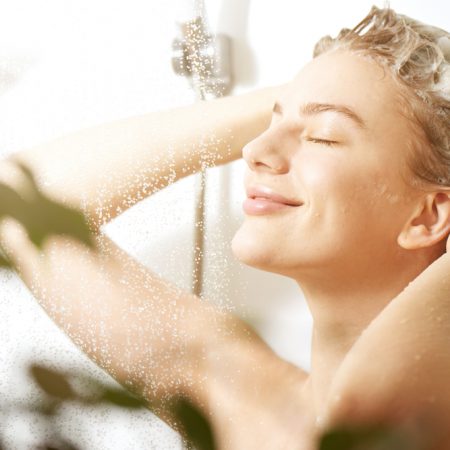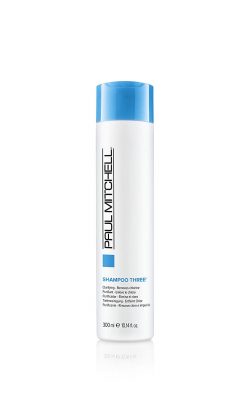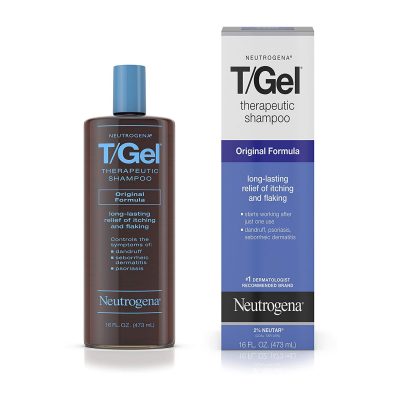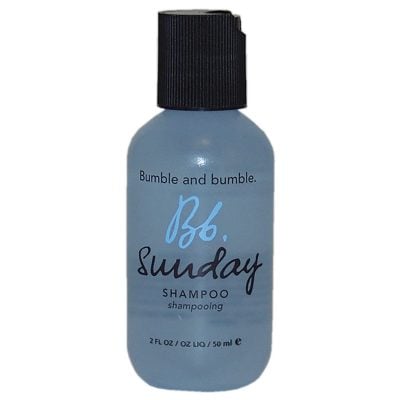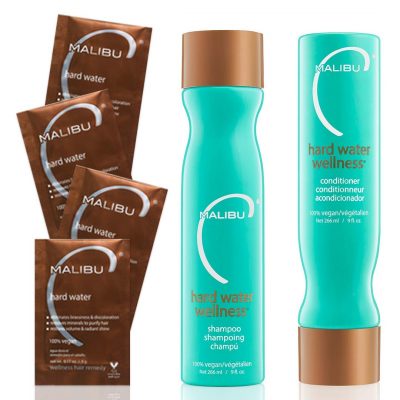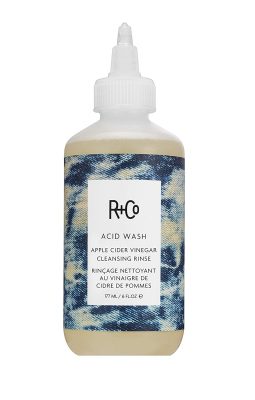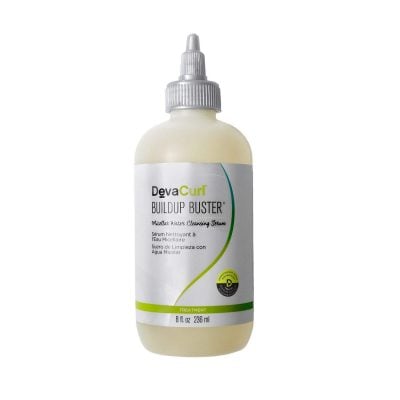Lifeless, heavy, and brittle hair is a frustrating problem. Often appearing out of nowhere, dry and distressed hair rarely has an easily discernible cause. One of the most common and most frequently overlooked causes of hair damage is hard water.
Every year, countless individuals battle with drab and unhealthy hair, sometimes never realizing that the real culprit is the high mineral content of their tap water.
Using a hard water shampoo is the easiest and most cost-effective solution to counteract the effects of hard water on hair health. While they may all seem similar on the surface, not all shampoos are created equal.
In our comprehensive buyer’s guide below, we’ll explain the features of a good quality hard water shampoo and why it might be the most important thing missing from your hair care routine.
If you’re just looking for some great products, then head straight to our list and you’ll be able to find a good quality hard water shampoo.
- Factors to Consider in Good Hard Water Shampoo
- Top 10 Best Shampoos for Hard Water 2026
- 1. Best Overall Hard Water Shampoo: Kenra Clarifying Shampoo
- 2. Best Premium Hard Water Shampoo: Brocato Peppermint Scrub Purifying Shampoo
- 3. Best Budget Hard Water Shampoo: Paul Mitchell Shampoo Three
- 4. Best Hard Water Shampoo for Sensitive Scalps: Neutrogena T/Gel Therapeutic Shampoo
- 5. Best Hard Water Shampoo for Oily Scalps: Bumble and Bumble Sunday Shampoo
- 6. Best Hard Water Shampoo Kit: Malibu C: Natural Protective Hard Water Wellness Shampoo and Kit
- 7. Best Hard Water Shampoo for Dry Hair: MoroccanOil Clarifying Shampoo
- 8. Best Natural Hard Water Shampoo: Desert Essence Coconut Shampoo
- 9. Best Hard Water Shampoo for Color-Treated Hair: R + Co Acid Wash ACV Cleansing rinse
- 10. Best Hard Water Shampoo for Curly Hair: Devacurl Build-Up Buster Micellar Water Cleansing Serum
- Guide to Buying the Best Hard Water Shampoo
- Top 5 Frequently Asked Questions
- Key Takeaways
Factors to Consider in Good Hard Water Shampoo
Now, you don’t need a chemistry degree to understand the link between hard water and unhealthy hair, but it can help to know the basics. When minerals accumulate in water, complex ionic chemical reactions can lead to a build-up of solid precipitates on the scalp. This can cause a range of different side-effects, from greasy hair to permanent scalp damage.
Ingredients List
At first glance, inspecting and understanding all the different ingredients used in shampoos can seem like an impossible task. Fortunately, there is really only one ingredient that differentiates hard water shampoo from regular shampoo: Disodium Ethylenediaminetetraacetic Acid (EDTA).
Used to remove excess minerals or metals from the body, disodium EDTA is a ‘chelating’ chemical. In the context of shampoos, a chelating shampoo creates a complex with the minerals and metals left behind on your hair by hard water. Once this complex is formed, these minerals will no longer bind to the hair and can be washed away with normal rinsing.
While not the only chelating chemical on the market, disodium EDTA tends to be the most commonly used ingredient in hard water shampoos. This is because it can effectively remove mineral build-up while also acting as a preservative for conventional haircare products. If you’d like more information about the use of chelating chemicals in hard water shampoos, we’ve put together a brief compendium on chelating and clarifying shampoo ingredients further down in this guide.
It’s important that you take the time to thoroughly read the ingredients list when considering a hard water shampoo. Many regular shampoos contain disodium EDTA as a preservative for the product.
However, this is often in low quantities, making it an ineffective protective agent against hard water hair damage. To avoid this scenario, look for shampoos that are specifically labeled as either a chelating shampoo or a hard water effective clarifying shampoo.
Scalp Sensitivity
Chelating shampoos are much stronger than ordinary shampoos, making them quite harsh on the scalp and hair. While chelating shampoos are excellent at stripping away unwanted mineral build-up, they won’t differentiate between mineral build-up and moisturizing oils.
If used too frequently, chelating shampoos can whisk away your body’s natural hydrating oils, potentially drying out your hair and/or exacerbating preexisting scalp conditions.
Hence, you should not use a chelating shampoo every time you wash your hair. This is especially true for people who suffer from sensitive scalp conditions (e.g. dandruff or psoriasis).
If you suffer from a sensitive or dry scalp, you’ll need to be extra careful when purchasing a hard water shampoo. Look for hard water shampoos that are specifically formulated for sensitive scalps. This style of shampoo will usually contain additional oil-based ingredients to counteract the harsh drying effect of disodium EDTA and other chelating chemicals.
Alternatively, you can also opt for a hard water shampoo with a naturally derived chelating ingredient, such as apple cider vinegar or sodium cocoyl glutamate. These ingredients will have the same detoxifying effects on mineral build-up, but will not be as drying on the scalp.
Individual Water Hardness
It’s important to consider the hardness of your tap water when purchasing a hard water shampoo. Water hardness levels range from soft water to moderately hard water, to hard water, and finally to very hard water.
The easiest way to find out if you have hard water is to look up your local council’s water report. Alternatively, you can invest in an at-home water testing kit to determine the exact level of water hardness in your home.
If you have soft water or moderately hard water, you’ll likely be best served with a gentler hard water shampoo. These shampoos contain natural chelating ingredients and can be used once every 1-2 weeks.
If your bathroom has hard water or very hard water, you’ll probably need a chelating shampoo that contains disodium EDTA or a similar EDTA ingredient.
With so many different hard water shampoos available, finding the best product to suit your hair and scalp can be overwhelming. To give you a head start on product research, we’ve broken down the 10 best shampoos for hard water on the market in 2026.
Top 10 Best Shampoos for Hard Water 2026
1. Best Overall Hard Water Shampoo: Kenra Clarifying Shampoo
Editor’s Rating:
Quick Facts
- Hair Type: All hair types, including color-treated.
- Vegan: No
- Cruelty-Free: Yes
Key Ingredients:
- Disodium EDTA
- Blueberry fruit extract
- Mica
- Aloe vera extract
- Witch hazel extract
- Grapefruit extract
Thanks to its concentrated dose of disodium EDTA, Kenra Clarifying Shampoo can create a sudsy lather in hard water, giving you a chance to cleanse your hair of mineral build-up. With naturally derived ingredients like mica and aloe vera extract, your hair strands won’t be left completely devoid of moisture, shine, and softness when you rinse this shampoo away.
If you’ve got extremely dry hair, you might want to opt for a gentler chelating shampoo as this shampoo can be quite drying on the scalp — use this product sparingly or mix with your regular shampoo to minimize scalp irritation.
Despite its many advantages, this shampoo is not even the most expensive shampoo on our list. This makes the Kenra clarifying shampoo a great option for anyone looking for a cost-effective solution to hard water damage. However, if you’re on the lookout for an even more budget-friendly alternative, consider the Paul Mitchell Shampoo Three.
Pros
- Eliminates mineral build-up
- Contains shine-enhancing ingredients
- Contains naturally derived moisturizing extracts
Cons
- Can be drying and rough on scalps
Editor’s Rating:
Quick Facts
- Hair Type: Ideal for all hair types. Color safe.
- Vegan: Unclear
- Cruelty-Free: Yes
Key Ingredients:
- Tetrasodium EDTA
- Peppermint oil
- Citric acid
Gentler than disodium EDTA, tetrasodium EDTA will quickly break down mineral build-up in the hair. Infused with refreshing peppermint oil, this dual product creates a fragrant sensory experience that is well worth its premium price point.
Paired with the invigorating properties of peppermint oil, this shampoo works to stimulate the scalp, improving circulation and natural oil production. The addition of acidic citric acid to this shampoo reacts with the negative charge of the hair follicle, working to flatten and condition the hair shaft. This promotes smooth, shiny, frizz-free hair.
Because it’s a milder product, Brocato Peppermint Scrub Purifying Shampoo can be used daily to remove sweat and product build-up. However, if you only have moderately hard water, a weekly deep cleanse will suffice to restore hair health and shine.
With an emphasis on cleansing ingredients, this shampoo lacks the moisturizing properties of other shampoos on this list. To avoid dried-out skin, be sure to follow up this shampoo with a moisturizing conditioner or hair mask. While this product is color-safe, it’s not recommended that individuals with colored hair use this product more than once a week.
If you need a more moisturizing hard water shampoo, take a look at the Malibu C: Natural Protective Hard Water Wellness Kit.
Pros
- Strong chelating ingredient
- Pleasant peppermint fragrance
- Hair conditioning properties.
Cons
- No moisturizing properties
- Not safe for daily use on colored hair
3. Best Budget Hard Water Shampoo: Paul Mitchell Shampoo Three
Editor’s Rating:
Quick Facts
- Hair Type: Moderately oily to oily. Not color-safe.
- Vegan: Yes
- Cruelty-Free: Yes
Key Ingredients:
- Disodium EDTA
- Plantain leaf extract
- Castor oil
- Wheat protein
Paul Mitchell Shampoo Three is yet another chelating shampoo that uses the strength of disodium EDTA. To moderate the stripping properties of disodium EDTA, this shampoo is mixed with a gentle yet effective formula of wheat protein and castor oil. In addition to improving hair texture and volume, these ingredients are natural moisturizers.
Despite its low price point, Paul Mitchell Shampoo Three is a fantastic product for combatting mineral build-up, product build-up, and chlorine build-up, all while without completely stripping the hair of its natural oils.
Pros
- Affordable
- Multipurpose
- Contains moisturizing agents
- Reverses chlorine damage
- Cruelty-free and 100% vegan
Cons
- Not color safe
- Not suitable for dry hair types
4. Best Hard Water Shampoo for Sensitive Scalps: Neutrogena T/Gel Therapeutic Shampoo
Editor’s Rating:
Quick Facts
- Hair Type: Individuals with sensitive scalps, psoriasis, dandruff, or dermatitis. Not recommended for color-treated hair.
- Vegan: No
- Cruelty-Free: Yes
Key Ingredients:
- Coal tar extract (0.5%)
- Tetrasodium EDTA
As well as using tetrasodium EDTA to purge the hair of hard water mineral build-up, the Neutrogena T/Gel Therapeutic shampoo also contains coal tar. While this may seem like an unusual ingredient to treat a sensitive scalp, coal tar works in conjunction with tetrasodium EDTA to thoroughly cleanse the scalp while also targeting underlying sources of inflammation that can contribute to scalp skin conditions.
In order to maximize results from this shampoo, we recommend that you leave the product in for several minutes before rinsing. Unfortunately, given the coal extract present in this shampoo, this product has a very strong and somewhat unpleasant fragrance. Moreover, it is not designed for use with color-treated hair. Take a look at the R+Co Acid Wash ACV Cleansing Rinse if you need a hard water shampoo that’s suitable for colored hair and sensitive scalps.
Pros
- Safe for sensitive scalps
- Can improve scalp health
- Multipurpose
- Affordable
Cons
- Unpleasant odor
- Requires leave-in time
- Not color safe
5. Best Hard Water Shampoo for Oily Scalps: Bumble and Bumble Sunday Shampoo
Editor’s Rating:
Quick Facts
- Hair Type: Oily, fine to medium hair. Not safe for color-treated hair.
- Vegan: No
- Cruelty-Free: Yes
Key Ingredients:
- Rosemary leaf extract
- Sage leaf extract
- Panax ginseng root extract
This heavy-duty shampoo is perfect for individuals dealing with the side-effects of very hard water or people who struggle to manage general hair oiliness. Rather than relying on an EDTA ingredient, the Bumble and Bumble Sunday Shampoo utilizes the naturally clarifying properties of rosemary and sage leaf extract.
While sage leaf extract works to strip the roots of mineral build-up, product residue, and excess greasiness, the rosemary leaf and ginseng root will stimulate the scalp, improving blood flow to the area and regulating follicle oil production.
In addition to lifting away excess oils, this detoxifying shampoo will also strip your hair of any accumulated environmental pollutants that may be contributing to dull-looking hair.
If your main concern is dry hair instead of oily hair, consider the MoroccanOil Clarifying Shampoo for a lighter option.
Pros
- Manage extremely oily hair
- Removes mineral build-up and greasiness
- Removes environmental pollutants
Cons
- Not color safe
6. Best Hard Water Shampoo Kit: Malibu C: Natural Protective Hard Water Wellness Shampoo and Kit
Editor’s Rating:
Quick Facts
- Hair Type: Safe for all hair types, including colored hair.
- Vegan: Yes
- Cruelty-Free: Yes
Key Ingredients:
- Disodium EDTA
- Rice protein
- Macadamia glycerides
- Linseed oil
- Ascorbic acid (vitamin C)
How it works: Utilizing disodium EDTA, the Malibu C natural protective hard water shampoo will break down and cleanse hard water mineral build-up while the rice protein and linseed oil work to restore moisture and strength back into your hair. You can use this duo every time you wash your hair to maintain shiny, voluminous, and silky hair.
While it has a reputation for being overly drying, the Malibu C weekly remedy treatment can also be used to further clarify your hair. This product is certified cruelty free and 100% vegan by the PETA Beauty Without Bunnies initiative.
Pros
- Complete hair care set
- Safe for everyday use
- Certified cruelty free and 100% vegan
Cons
- Can be drying
7. Best Hard Water Shampoo for Dry Hair: MoroccanOil Clarifying Shampoo
Editor’s Rating:
Quick Facts
- Hair Type: Dry, damaged hair. Color safe
- Vegan: Yes
- Cruelty Free: Yes
Key Ingredients:
- Disodium EDTA
- Rosemary leaf extract
- Argan oil
- Keratin
- Jojoba extract
- Vitamin B5
How it works: A combination of disodium EDTA and rosemary leaf extract draws out mineral build-up in the hair, leaving the scalp feeling lightweight, soft, and squeaky-clean. To counteract the harsh properties of the EDTA and repair your dry hair, this product uses a combination of moisturizing oils like argan oil and a structural protein called keratin. Thanks to the high concentration of these agents, this shampoo will restore hair moisture and strengthen the follicle shaft.
Because of its high dose of disodium EDTA, this product should only be used once or twice a month. If your water is very hard, this product can be used a maximum of once per week.
Looking for a vegan and cruelty-free option at a more affordable price point? Consider the Desert Essence Coconut Shampoo.
Pros
- Moisturizing properties
- Keratin for added hair strength
- Color safe
Cons
- Not suitable for frequent use
8. Best Natural Hard Water Shampoo: Desert Essence Coconut Shampoo
Editor’s Rating:
Quick Facts
- Hair Type: Dry, damaged hair.
- Vegan: Yes
- Cruelty-Free: Yes
Key Ingredients
- Coconut water
- Coconut oil
- Fennel seed extract
- Black elderberry extract
- Shea butter
- Hemp seed oil
- Citric acid
This mild shampoo makes use of a surfactant known as sodium cocoyl glutamate. Naturally found in ingredients like coconut oil, this surfactant helps to soften hard water, preventing mineral build-up before it can even occur. Although this ingredient is not as commonly used as disodium EDTA, it’s highly effective in naturally eliminating pollutants from the hair and even helps to strengthen hair structure.
Combined with nourishing cruelty-free superfruits and gluten-free protein, this shampoo is truly a moisturizing tropical treat for your hair. Better yet, the shampoo bottle is made from 100% post-consumer recycled plastic, so you can treat yourself without harming the planet.
Please note, as sodium cocoyl glutamate is not as strong as EDTA, this product may not be suitable for homes with very hard water.
Pros
- EDTA free
- Naturally derived ingredients
- Moisturizing properties
- Made from recyclable plastic
Cons
- Not as effective against very hard water
9. Best Hard Water Shampoo for Color-Treated Hair: R + Co Acid Wash ACV Cleansing rinse
Editor’s Rating:
Quick Facts
- Hair Type: Colored hair. All hair types. Can be used for sensitive scalps.
- Vegan: Yes
- Cruelty-Free: Yes
Key Ingredients:
- Apple fruit extract
- Aloe vera leaf juice
- Tamanu seed oil
- Vegetable protein
Much like using a DIY vinegar or citrus rinse, this product uses the natural cleansing properties of apple cider vinegar (ACV). This shampoo will gently purify your scalp without stripping away essential oils or color treatments and, with the added bonus of natural, moisturizing ingredients, your hair will be softer, lightweight, and more manageable. While apple fruit extract from ACV exfoliates the scalp and clears away build-up, it also works to strengthen and revitalize the hair. Paired with the moisturizing properties of aloe vera and tamanu seed oil, your hair will be left feeling refreshed, silky, and full of lustrous color.
While the exfoliating properties of ACV work to soothe scalp irritation, the added tamanu seed, an oil rich in fatty acids, will help to retain scalp moisture. Suitable for use once a week, a potential downside to this product is its distinct vinegary scent. While not overpowering, we understand this can be off-putting for some individuals.
If you have very hard water or a particularly sensitive scalp, you may need to consider a stronger EDTA product, such as the Neutrogena T/Gel Therapeutic Shampoo.
Pros
- Color safe
- EDTA free
- Moisturizing properties
- Safe for sensitive scalps
- Cruelty-free and 100% vegan
Cons
- Vinegar odor
10. Best Hard Water Shampoo for Curly Hair: Devacurl Build-Up Buster Micellar Water Cleansing Serum
Editor’s Rating:
Quick Facts
- Hair Type: Curly, fine to thick hair. Color safe.
- Vegan: Yes
- Cruelty-Free: Yes
Key Ingredients:
- Disodium EDTA
- Micellar water
- Jojoba oil
- Abyssinian seed oil
- Pea protein
- Castor oil
- Rosemary extract
A combination of disodium EDTA, micellar water, and rosemary extract pulls out impurities from the hair and scalp, washing away any nasty mineral build-up that is sitting on your scalp and weighing down your curls. While this shampoo can still be drying, the lower disodium EDTA content and the reliance on the natural cleansing properties of rosemary and micellar water will prevent your curls from becoming parched, starchy, and frizzy.
Finally, a combination of jojoba oil, castor oil, and Abyssinian seed oil injects your curls with moisture, improving buoyancy and boosting curl shine. Pea protein acts to strengthen the hair follicle, resulting in lightweight, strong, and vibrant curls. Please note, due to its lower EDTA content, this product may not be as effective in areas with very hard water.
Pros
- Natural chelating ingredients
- Moisturizing properties
- Shine-enhancing ingredients
Cons
- Not as effective against very hard water
Understanding hard water and how it effects your hair can be confusing. Keep reading if you’d like a more comprehensive breakdown of what hard water is, important hard water terminology, and how chelating shampoo can minimize hard water damage.
Guide to Buying the Best Hard Water Shampoo
What is Hard Water?
Put simply, hard water is water that has a particularly high mineral content. While this may sound like a good thing, it can actually cause a build-up of minerals on your skin, scalp, and hair. Left untreated, a build-up in hard water can result in lank, starchy hair that feels heavy, greasy, and brittle.
Hard water is formed when water travels through mineral-rich rocks, such as limestone, gypsum, or chalk, and picks up minerals.
Without delving too deeply into the chemistry, hard water is caused when ionic reactions form insoluble precipitates. These solids, commonly known as limescale, are visible as a white substance that you may have seen forming on your showerheads or faucets. If you’re interested in the chemical processes of hard water, check out this video for a more detailed breakdown of the hard water formation process.
According to the United States Geological Survey, water can be classified into one of four categories: soft water, moderately hard water, hard water, and very hard water. The calcium carbonate content of these four categories is as follows:
- Soft water: >61 mg/L
- Moderately hard water: 61-120 mg/L
- Hard water: 121-180 mg/L
- Very hard water: >180mg/L
More than 85% of homes in America are connected to hard water. While the signs of hard water are not hard to identify, you may find it easier to just check your local council’s water report or use a simple DIY hard water test kit.
Breaking Down Shampoo and Hard Water Terminology
Hard Water
Hard water refers to any water that has a high concentration of minerals (usually calcium, bicarbonates, magnesium, or sulfates). Hard water is formed when water percolates through rocks, such as limestone or chalk, picks up mineral deposits and carries them all the way through treatment to your tap.
Soft Water
Unlike hard water, soft water contains a very low concentration of minerals. Soft water generally occurs in river basins or aquifers that are made from a calcium-poor, impervious rock bed.
Clarifying Shampoo
Clarifying shampoos are more commonly used for removing hair product build-up from the surface of the hair. Product build-up may occur if you regularly use hairspray or dry shampoo. Clarifying shampoos work by exfoliating the hair follicle and cuticle, breaking up the hardened product and then washing it away during rinsing.
Chelating Shampoo
Chelating shampoos are a stronger shampoo that can remove minerals, metals, and chlorine from your hair. Chelating shampoos work by breaking the bond between the mineral and your hair shaft, forming a chelate-mineral complex that can then be rinsed away.
Build-Up
Build-up in the hair simply refers to the build-up of minerals or haircare products on the scalp and hair shaft. Build-up contributes to the dull, heavy, and greasy feeling that is characteristic of hair damaged from hard water or product overuse.
Common Indicators of Hard Water
If you suspect you have hard water, there may be some easily identifiable signs that you can look out for without conducting a hard water test.
Calcium Build-Up
Hard water creates a build-up of mineral deposits or ‘scale’ in plumbing, especially your showerhead or sink faucets. If you have a stubborn white substance around your showerhead or on your faucets, your home most likely has hard water.
Soap Scum
A build-up of soapy, white scum on your bathtub or sink can be another indicator that you have hard water. This build-up is caused by a reaction between the minerals in hard water and sodium stearate, a solid product found in everyday hand soaps. Rather than dissolving in water like it usually would, the sodium stearate reacts into cloudy solids. These solids are what remains behind in your sink or bathtub after you’ve had a shower or washed the dishes.
Porcelain Stains
Too much iron in your water can create unsightly brown stains in your bathtub or toilet bowl. Increased iron content could be caused by hard water induced oxidation in your pipes.
Dingy Clothes
As previously mentioned, soap doesn’t react well with hard water, resulting in laundry that may feel soapy or still dirty after washing. Minerals like calcium or magnesium react with the solids in soap, preventing the soap from breaking down dirt or oils and properly washing them away. Over time, this can cause clothes to appear drab, stained, and worn out.
Skin Irritation
The minerals in hard water can wreak havoc on sensitive skin. While minerals in small doses should not cause any problems, individuals with skin sensitivities will find hard water triggers or worsens their symptoms. This is because the minerals in hard water absorb moisture out of the pores, aggravating skin that may already be dry and flaky.
Damaged Appliances
As with your showerhead, a build-up of minerals can destroy your household appliances. A common example of hard water damage to household appliances is persistent limescale deposits inside your kettle.
Consuming or using hard water is not known to cause any serious health issues. In fact, hard water can sometimes be beneficial, especially for people with dietary mineral deficiencies. Nevertheless, while not dangerous, prolonged use of hard water can still contribute to negative cosmetic effects on the hair and skin.
When the minerals in hard water remain on the skin and hair, they draw out moisture. Over time, this can result in a dry, itchy skin and dull, lank hair. In the long run, the minerals in hard water can begin to affect the pH of your skin. If you believe that hard water is aggravating or underpinning a hair/skin condition, you should consult your dermatologist and switch to hard water friendly hair and body products.
Testing for Hard Water
In addition to looking out for the common signs of hard water around the house, you can also take a water sample to your local water provider to check for water hardness. Alternatively, you can purchase a DIY hard water test online. There are several DIY options for checking whether your water is hard, but you’ll need a more sophisticated test to determine exact levels of hardness.
However, if all you want to do is to check whether your water is hard or not, simply fill up a bottle with water from your sink until it’s about a third full. Add one or two drops of liquid dish detergent, seal the bottle, and shake vigorously. If the bottled water is clear on the bottom and has lots of fluffy bubbles at the surface, you have soft water. If the water is murky or cloudy and lacks any surface bubbles, your water is hard.
If you want a more precise idea of how hard your water is, you can invest in an at-home test kit. A hard water test kit will allow you to determine the exact hardness of your water rather than simply giving you a general indicator of water hardness. A generic at-home hard water test kit will include a number of sampling strips and a color chart to interpret your results.
When you place the testing strip in its designated container of water, the strip will turn a different color depending on the hardness of your water. The color shown can then be cross-referenced against the water hardness color guide included in your kit. Remember, you’ll need to submerge the testing strip in the designated amount of water. If you simply place the strip under running tap water, the testing kit will not yield accurate water hardness results.
If you’re on the market to purchase an at-home water hardness test, we recommend the JNW Direct Total Hardness Test, a top-rated yet highly affordable hard water test kit that comes with 150 testing strips.
Types of Hard Water Shampoo: Should You Use Chelating or Clarifying Shampoo?
Chelating and clarifying shampoos, while addressing similar issues, should not be used interchangeably. Remember, clarifying shampoos are a great option if you tend to use a lot of hair products, particularly hair spray or dry shampoo. Over time, the continued use of these products can create a powdery build-up on the scalp and hair, resulting in hair that is limp, heavy, and dull.
In most cases, a standalone clarifying shampoo will not be able to prevent hard water from damaging your hair. This is where a chelating shampoo comes in. A chelating shampoo is generally 3 times stronger than regular shampoo, making it much more effective at cleansing mineral build-up from hard water. Some common (and verifiably safe) chelating ingredients include:
- Disodium EDTA
- Sodium gluconate
- Sodium phytate
- Tetrasodium EDTA
There are also many different naturally derived chelating ingredients, including:
- Sodium cocoyl glutamate
- Micellar
- Apple cider vinegar
While some chelating shampoos can also help to clarify your hair, a clarifying shampoo will rarely be strong enough to remove chlorine, calcium, or magnesium build-up. Please note, many haircare companies use the term clarifying and chelating interchangeably, so be sure to always read the item description and ingredients list to determine whether the product is suitable for treating hard water damage.
Regular Shampoo vs Hard Water Shampoo
Using a regular shampoo with hard water will only worsen the condition of greasy, heavy, or dull hair. This is because the soap in normal shampoo cannot create a lather in hard water, preventing the suds from effectively loosening and washing away dirt, oil, and product build-up.
Substituting your regular shampoo with a chelating shampoo once or twice a week will make a significant difference in your hair health and overall appearance. After washing with a chelating shampoo, you’ll immediately notice that your hair feels lighter, cleaner, and less brittle.
Top 5 Frequently Asked Questions
1. Why Is Hard Water Bad for Your Hair?
Hard water is not considered dangerous for your general health. However, it can certainly be detrimental to the health of your hair. After repeated exposure to hard water, minerals can begin to build up on your scalp and hair. Over time, these minerals will begin to absorb oils from your hair and prevent moisture from entering your strands, resulting in hair that feels dry and brittle.
2. What Shampoo Is Best to Get Rid of Build-Up?
Investing in a good quality chelating shampoo can help to remove any build-up of hard water minerals on your scalp or in your hair. The best chelating shampoo for you will ultimately depend on your hair type and the hardness of your water. Check out our breakdown of the top 10 chelating shampoos of 2026 to see if you can find the best chelating shampoo for your hair.
3. How Can I Protect My Hair From Hard Water?
Short of installing a hard water filter on your showerhead or switching to rainwater, there is not a lot you can do to protect your hair from hard water. Instead, focus on using products that will minimize the impacts of hard water on your hair and prevent permanent damage to your scalp and hair follicles. Invest in a quality chelating shampoo and regularly use leave-in conditioners or hair masks to help nourish and moisturize your hair. If the water in your home is extremely hard and you cannot install a water filter, you could use purified filter water to wash and rinse your hair.
4. Should I Use a Specialized Shampoo If I Have Hard Water?
Yes! Using a specialized hard water shampoo can save your hair and scalp from the damaging effects of excess mineral build-up. Alternatively, if you do not wish to change shampoos, invest in a water filter to soften the quality of your tap water.
5. Can I Reverse the Effects of Hard Water on My Hair?
In order to reverse the effects of hard water on your hair, you’ll first need to remove the build-up of minerals caused by hard water. This can be done by using a chelating shampoo. If you have very hard water, look for a strong chelating shampoo, preferably one that lists an EDTA in its ingredients list. If your water is only moderately hard, you can probably get away with using a gentler shampoo that utilizes natural chelating ingredients. For added clarity, follow your shampoo with an ACV rinse to prevent minerals being redeposited in your hair when rinsing.
Key Takeaways
Hard water can be a frustrating problem, both for your hair and for your household items. Whether you’ve noticed the side-effects of hard water on your hair or you’re concerned you may have moved into an area with hard water, investing in a quality chelating shampoo can help to maintain the health of your hair and scalp.
When shopping for a hard water shampoo, it’s important that you take the time to consider the hardness of your water, the condition of your hair and scalp, and the ingredients of the shampoo. Remember, while a natural clarifying or chelating shampoo will be sufficient to counteract the damage of hard water in moderate hard water areas, you’ll need a much stronger chelating shampoo if your house uses hard or very hard water.
